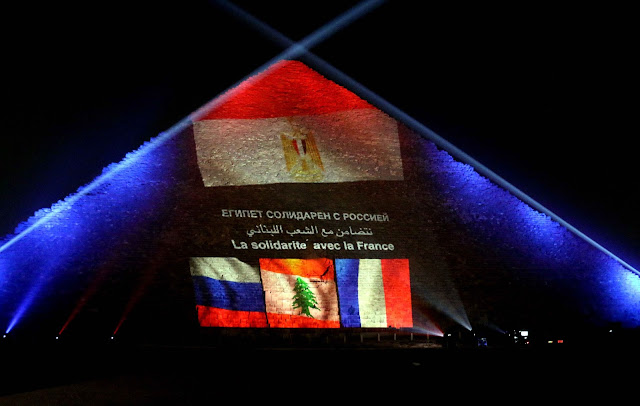Egypt tourism industry expects moderate growth in 2015
 |
| Minister Hisham Zaazou |
Egypt's tourism industry, hit by years of political upheaval and militant violence, is expected to post moderate growth this year and hopes a global advertising campaign will revive the sector vital for economic recovery, the tourism minister said.
Last year, 9.9 million tourists visited Egypt, a far cry from the 14.7 million that visited in 2010, before an uprising the following year triggered turmoil in the land of ancient sites and sea resorts.
President Abdel Fattah al-Sisi has restored some stability since the army toppled Islamist President Mohamed Mursi in 2013 following mass protests against his rule but not enough to persuade large numbers of foreigners that it is safe to return.
Minister Hisham Zaazou expects around 10 million tourists this year or slightly higher, one million less than the previous forecast of 11 million.
"From January until the end of August the rise was very little, barely 5 percent," he told Reuters in an interview.
"So if we move at the same rate the numbers will be around 10 million... or slightly higher."
Around 6.6 million tourists visited so far this year, producing revenues of $4.6 billion, compared with 6.3 million in the same period last year, when $4.509 billion was generated.
"I cannot say that the general climate is positive but the figures show that there is a modest improvement," Zaazou said.
Zaazou expects tourism receipts to range between $7.5-8 billion by the end of the year. Receipts once peaked at $12.5 billion.
Tourism is a major source of hard currency in Egypt, where foreign reserves have tumbled from $36 billion before the uprising to $18 billion at the end of August.
Zaazou expects the tourism sector to pick up next year with double digit growth in the number of tourists and revenues ranging between $9-10 billion.
CHANGING PERCEPTIONS
The rapid advance of Islamic State -- a group seen as more extreme than al Qaeda -- has worried governments across the region, including in Egypt, a strategic U.S. ally which has a peace treaty with Israel and controls the Suez Canal waterway.
Egyptian officials say authorities have made great progress in the battle against militants and accuse Western media of exaggerating security threats.
Egypt has witnessed a rise in attacks on soldiers and police since then army chief Sisi toppled Islamist President Mohamed Mursi in 2013 after mass protests against his rule.
Sinai-based militants who support the ultra-hardline Islamic State group have killed hundreds, and have recently claimed attacks on Western targets, such as a bombing outside the Italian consulate in Cairo.
In a bid to restore confidence, Egypt will launch a global advertising campaign in November.
"The focus has been on such (negative) news even though we are sitting here, going to our work and dealing with the situation as if it is completely stable but this picture is not portrayed abroad," Zaazou said.
"I believe that (changing perceptions) must be a priority at this stage because the current views on the situation in Egypt is not good, so we must work on that."
Egyptian tourism has survived big setbacks in the past.
On Nov. 17, 1997 Islamic militants descended on Queen Hatshepsut's temple near the Nile town of Luxor. In a short time they shot or hacked to death 58 tourists and four Egyptians.
The following January and February, visitor numbers were down almost 60 percent from the previous year. Yet the industry staged a remarkable comeback.
Last year, the bombing of a tourist bus in Sinai killed two South Koreans and an Egyptian, reviving memories of an Islamist uprising in the 1990s that often targeted tourists and took years for then President Hosni Mubarak to crush.
So far, militants have not carried out high-profile attacks on tourists under Sisi.
This month, Egyptian security forces mistakenly bombed a convoy of Mexican tourists in the western desert while pursuing militants. Eight Mexicans and four Egyptians were killed.
Zaazou said steps would be taken to ensure such incidents do not occur again.
The tourism minister said he would concentrate on Red Sea resorts which have managed to attract visitors despite the uncertainty since 2011.
"I will focus on the bulk of tourist movement. While desert tourism is important, the highest figure for it was 350 thousand (people a year). Sharm El Sheikh, on the other hand, received more than 4 million tourists at some point, on its own," he said.
"I am going to work on everything related to those areas, from securing them and all else. I will focus on starting there."






